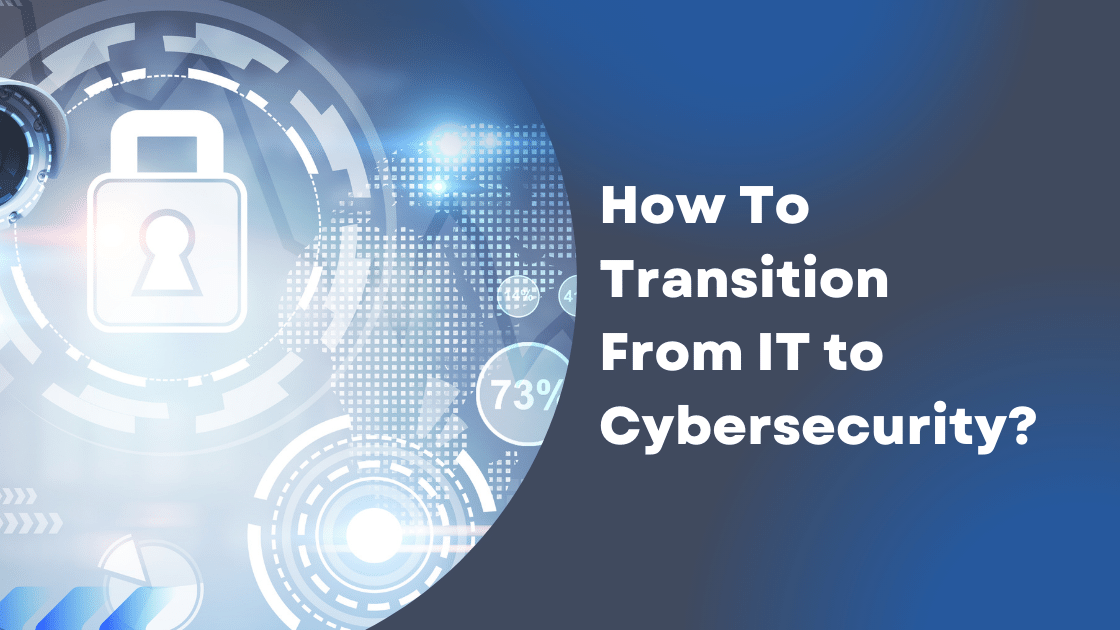If you work in IT, you know how important it is to be proactive in order to develop your career. You must keep up with industry trends and developments, gain new skills, and be ready to adapt to new technology.
Making the switch to cybersecurity is part of the adaptation process for many IT employees. If you’re an IT professional wondering how to break into cybersecurity, keep reading to learn everything you need to know.
What is the purpose of cybersecurity?
In the twenty-first century, cybersecurity is synonymous with job security. It is currently one of the most in-demand industries, with demand for information security analysts predicted to expand by 28% by 2026, according to the Bureau of Labor Statistics. That’s far faster than the majority of jobs in the United States.
In the field of cybersecurity, there are huge shortages right now. According to a 2016 report, there would be a global shortage of 2 million cybersecurity specialists by 2019.
We also can’t overlook the fact that cybersecurity specialists are well rewarded since they are in great demand and perform critical functions. An entry-level cybersecurity analyst may expect to earn roughly $90,000 per year!
How to Get Into Cybersecurity as an IT Professional
Having an IT background provides you a tremendous leg up on other people seeking to break into the field. Because there is a lot of overlap in skills and education, many firms prefer to hire persons with an IT experience when filling cybersecurity positions.
Most people believe that to enter the world of cybersecurity, you must have a four-year degree. It isn’t always the case, though. While some jobs may require a degree, many employers are willing to hire qualified people who can get the job done even if they don’t have one.
Job Requirements in Cybersecurity
There are many different types of cybersecurity professions, each with its own set of requirements. As previously said, some occupations require a four-year degree or even a master’s degree, while others require no college education at all.
Any cybersecurity job will have two criteria, right? Certifications in cybersecurity and real-world experience Certifications in cybersecurity that will come in handy when making this career transition…
Employers want to hire IT experts for cybersecurity positions because they have on-the-job expertise in an area that is very similar to cybersecurity. Cisco Certified Network Associate (CCNA) CompTIA A+ and Network+ Microsoft Certified Solutions Expert Certified Ethical Hacker
Employers seek for a variety of traits in addition to cybersecurity qualifications…
- Candidates with a good IT background are preferred (e.g. networking, systems admin, database management, web apps, etc.)
- People who are familiar with the day-to-day activities of an IT department
- Candidates who understand business processes and procedures and can communicate with non-IT colleagues and work well in a team
- Candidates who can code (you’ll be working with and around code, therefore it’s critical that you know how to do it!)
- People who are well-versed in cloud computing
- Solvers of problems
If you want to make this career change, concentrate on obtaining cybersecurity certifications, self-learning, and gaining as much hands-on experience as possible.
Aside from the aforementioned certifications and experience, knowing what you want to achieve in cybersecurity is crucial. Do you enjoy working on network hardware security? If that’s the case, network security engineer could be a wonderful fit for you. A cloud security engineer is a fantastic fit for you if you enjoy working in the cloud and have a deep awareness of the specific security problems it poses. Find the element of cybersecurity that interests you the most and pursue certifications and hands-on experience in that field.
IT Jobs That Can Lead to a Cybersecurity Career
While many IT positions can lead to a career in cybersecurity, the following are some of the finest to work in if you want to make the switch:
- Network Administrator
- Web Administrator
- IT Technician
- IT Technical Support
- IT Customer Service
- Computer Programmer
- Computer Software Engineer
- Computer Support Specialist
- Computer Systems Analyst
- Database Administrator
- Network Engineer
- Network Systems & Data Analyst
- System Administrator










Leave a Reply